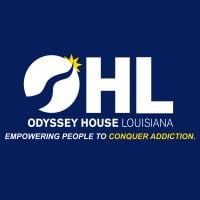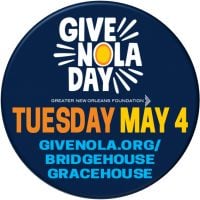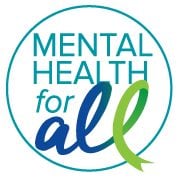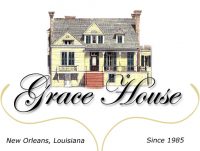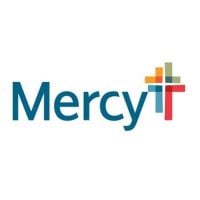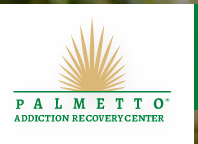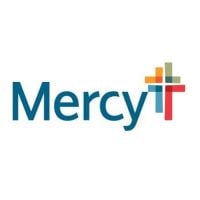Family Services - Alcohol and Drug Counseling
Drug Rehab Center in New Orleans, Louisiana
Family Services - Alcohol and Drug Counseling in New Orleans provides evidence-based treatment and specialized services for addiction and substance abuse, with a range of therapeutic approaches including individual and group counseling, relapse prevention, and family therapy.
Multiple patients have reported Family Services - Alcohol and Drug Counseling as permanently closed.
Research other rehabs in New Orleans, Louisiana, or get help finding an open facility.
About Family Services - Alcohol and Drug Counseling in Louisiana
Family Services - Alcohol and Drug Counseling in New Orleans, Louisiana is a top-notch facility offering an extensive range of treatment services for individuals struggling with addiction and substance abuse. Through evidence-based treatment methods, qualified clinical staff and comprehensive aftercare plans, they strive to provide the highest quality care possible and equip individuals with the tools they need to achieve long-term sobriety. The specialized services they provide include individual and group counseling, relapse prevention, family therapy, life skills development, and more. Additionally, they provide a variety of specialized programs for co-occurring mental health disorders.
At Family Services - Alcohol and Drug Counseling, a wide variety of therapeutic approaches are used to help clients learn, practice and apply new skills to their lives. Through individual counseling, clients are able to address the underlying causes of their addiction and develop healthier coping strategies. Group therapy provides a safe and supportive environment that encourages clients to connect with each other, build a strong sense of community and work toward their shared goal of recovery. Additionally, relapse prevention is an important part of treatment, and Family Services - Alcohol and Drug Counseling offers a range of education, support and practical tools to assist clients in preventing relapse and staying on track with their recovery.
Family Services - Alcohol and Drug Counseling is accredited by both the Commission on Accreditation of Rehabilitation Facilities and the Florida Department of Children and Families, and they are also licensed to provide substance abuse treatment in the state of Louisiana. They pride themselves on their commitment to quality and their ability to provide customized treatment plans tailored to meet the individual needs of their clients. They also offer court-mandated services and are proud recipients of the Better Business Bureau's Torch Award for Excellence in the Business of Addiction Treatment.
Genders
Ages
Modality
Additional
Conditions and Issues Treated
Recovery is not simply about stopping drug use. Recovery is working with addiction while recovering mental health issues that are fueling the addiction in the first place.
Levels of Care Offered
This center offers a variety of custom treatment tailored to individual recovery. Currently available are Dual-Diagnosis, Outpatient, with additional therapies available as listed below.
Outpatient treatment is considered the lower intensity level of addiction treatment. It’s ideal for early phase addiction or lower intensity addictions. It may include weekly sessions instead of daily. It may include weekly sessions instead of daily. Peer group support, 12-step programs, and individual counseling may still be involved but at a lesser frequency than an intensive outpatient program. It is a good choice for someone who doesn’t need to go through a medically supervised detox and who has a supportive home environment. It requires motivation and dedication to commit to the program without constant monitoring.
Therapies & Programs
Individual therapy involves one-on-one sessions between the patient and therapist. It provides patients with a safe environment to openly discuss personal and sensitive issues with the therapist. They find the therapist as someone they can trust. Individual therapy aims to identify the core issues that would have led the patient to substance abuse and address them effectively. The therapist can develop patient-specific customized solutions through individual therapy, which aids speedier recovery.
Couples therapy works with clients and significant others in a professional capacity to improve relationship dynamics. This can be helpful for addicts who are trying to marry the idea of recovery into their work, family, social lives – any aspect that has to do with relationships.
Through counseling sessions, addicts will have an opportunity to talk about their addiction with professional partners. These partners can offer feedback and advice on how to get sober while keeping healthy relationships intact. A good couples therapist will help addicts understand their part in an unhealthy relationship dynamic or find ways to deal with anger or resentment from significant others outside of the home.
Family therapy is a group problem-solving that aims to improve communication and relationships between the addict, their family, and sometimes friends. The main goal of family therapy for drug addiction is to create an environment where communication can occur without judgment, hostility, or blame. The therapist is with the family as they learn to communicate differently, especially with the addict when s/he is using. The family can learn to reduce their enabling behavior or rally together and support each other during tough times.
An addict’s family can play a vital part in helping them to avoid relapse because they can spot the warning signs and help them get back on track before it becomes too much of a problem. Family therapy is one of the most effective ways to help addicts stay on the path to long-term sobriety. When a drug addict decides that they want to try and get sober, it takes the support of every person they love to succeed. It can be incredibly difficult for loved ones to watch an addict go through the pain and suffering of withdrawal, but by being there with them and supporting them, they can help to make sure that the addiction never returns.
Groups typically involve meetings with other recovering addicts who can relate to one another’s experiences. They might meet in person or online and typically focus on the process of staying sober rather than overcoming a specific addiction.
In these groups managed by Family Services - Alcohol and Drug Counseling, addicts can build a sense of community and develop strong emotional connections with others who understand what they are going through. These beneficial relationships can help addicts overcome their cravings and prevent relapse at any point during the recovery process.
In general, trauma therapy is a clinical process that helps individuals deal with mental stress often caused by traumatic events. The therapist helps the person identify, understand, and work through the problem. This is done with the help of talking about it in group or one-on-one counseling sessions. Therapists use relaxation, role-playing, art, and music to help the person open up about what is bothering them.
There are many different types of trauma therapists, such as psychiatric nurses and counselors. Not everyone is a good candidate for this type of therapy; it is generally reserved for people who have recently experienced a traumatic event and struggle to get over it. It is often done for children, teenage victims of sexual assault, and war veterans.
There is hope for people who are addicted to drugs and alcohol. Cognitive Behavioral Therapy (CBT) is the solution. CBT focuses on the underlying thoughts and behaviors that caused the addiction problem in the first place and may cause a relapse. This type of psychotherapy addresses negative feelings common in substance abuse disorders. It helps to change them by restructuring thought patterns. It’s about removing negative thoughts and providing long-term benefits while promoting self-awareness, self-control, and healthy ways to respond to negative thoughts. These sessions can be done by themselves or as part of combination therapy.
Patient Experience
Experiential Therapy at Family Services - Alcohol and Drug Counseling
Experiential Therapy teaches people how to think differently about their lives and change their emotions by changing their behavior. This type of treatment is accomplished with various activities that may involve acting, props, arts and crafts, animal care, or other tools that may be effective.
This therapy aims for patients to release suppressed thoughts that cause bad feelings and drug addiction. Role-playing, arts and crafts, music, animal care, rock climbing, etc., are some of the activities used in this therapy. Gradually an individual will feel calmer and more loving which will change their perception positively. In addition to treating drug addiction, experiential therapy is beneficial for different behavioral and eating disorders.
Payment Options Accepted
For specific insurance or payment methods please contact us.
Additional Details
Specifics, location, and helpful extra information.
New Orleans, Louisiana 70119 Phone Number(504) 822-0800 Meta DetailsUpdated November 25, 2023
Staff Verified
Family Services - Alcohol and Drug Counseling Patient Reviews
There are no reviews yet. Be the first one to write one.
New Orleans, Louisiana Addiction Information
Louisiana is one of the top ten states in the nation for opioid-related deaths. One in ten high school students admits to regularly using prescription opioids for non-medical purposes. More than 225,000 Louisiana residents admit to regular heavy drinking and around 6% of the Louisiana population abuses alcohol. Marijuana use in Louisiana is most common amongst teenagers between the ages of 12 and 17 years old.
Drug addiction and abuse can greatly impact the community in New Orleans. 115 people die from an opioid overdose every day. Families are torn apart, friends are lost, and lives are forever changed due to drugs. Treatment centers in New Orleans generally follow the 12-step model of recovery, which includes steps such as admitting powerlessness over the addiction, making amends for past wrongs, and helping others who are still struggling.
Treatment in Nearby Cities
- Springhill, LA (289.9 mi.)
- New Roads, LA (95.4 mi.)
- Mandeville, LA (27.3 mi.)
- Oakdale, LA (164.5 mi.)
- Oak Grove, LA (214.6 mi.)
Centers near Family Services - Alcohol and Drug Counseling
The facility name, logo and brand are the property and registered trademarks of Family Services - Alcohol and Drug Counseling, and are being used for identification and informational purposes only. Use of these names, logos and brands shall not imply endorsement. RehabNow.org is not affiliated with or sponsored by Family Services - Alcohol and Drug Counseling.

